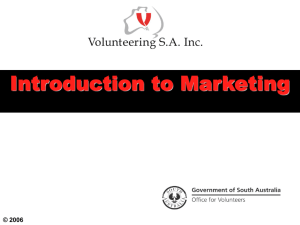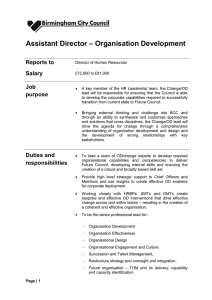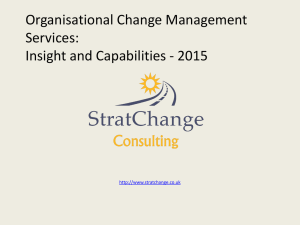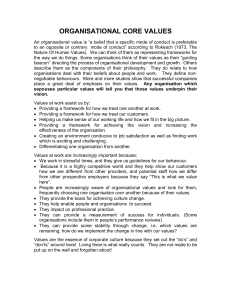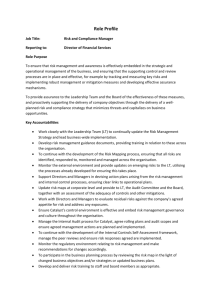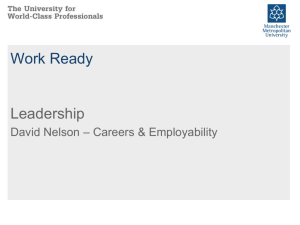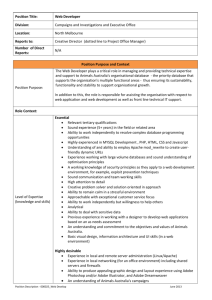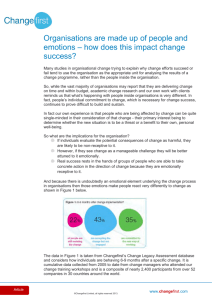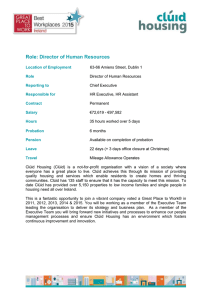Learning and Development Strategy
advertisement
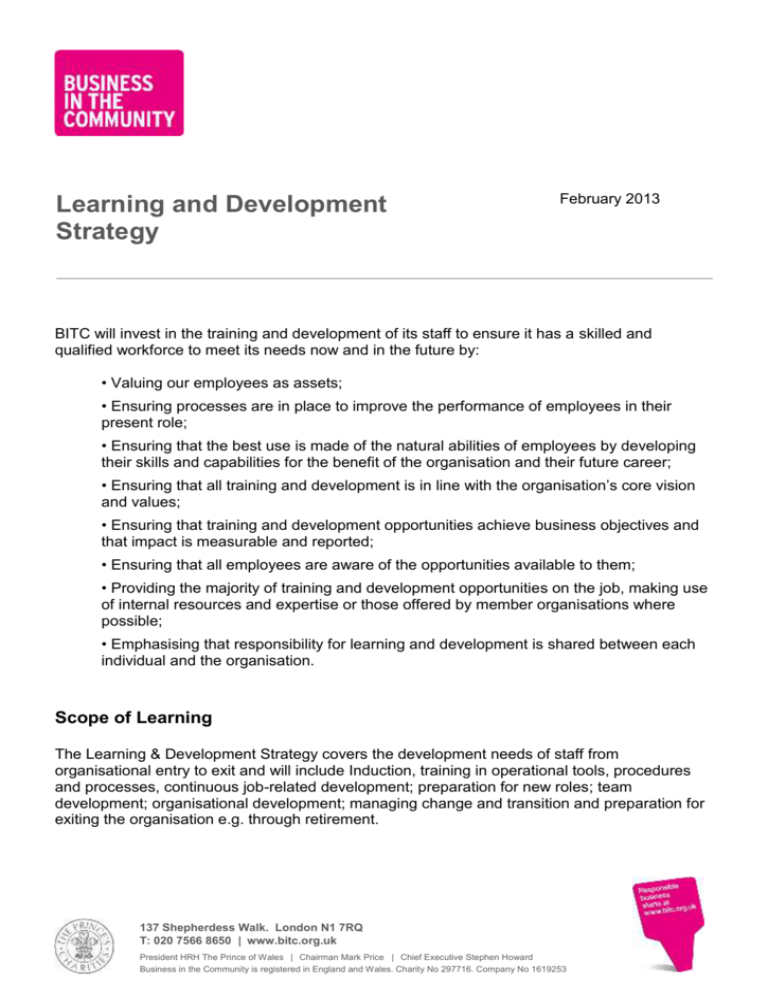
Learning and Development Strategy February 2013 BITC will invest in the training and development of its staff to ensure it has a skilled and qualified workforce to meet its needs now and in the future by: • Valuing our employees as assets; • Ensuring processes are in place to improve the performance of employees in their present role; • Ensuring that the best use is made of the natural abilities of employees by developing their skills and capabilities for the benefit of the organisation and their future career; • Ensuring that all training and development is in line with the organisation’s core vision and values; • Ensuring that training and development opportunities achieve business objectives and that impact is measurable and reported; • Ensuring that all employees are aware of the opportunities available to them; • Providing the majority of training and development opportunities on the job, making use of internal resources and expertise or those offered by member organisations where possible; • Emphasising that responsibility for learning and development is shared between each individual and the organisation. Scope of Learning The Learning & Development Strategy covers the development needs of staff from organisational entry to exit and will include Induction, training in operational tools, procedures and processes, continuous job-related development; preparation for new roles; team development; organisational development; managing change and transition and preparation for exiting the organisation e.g. through retirement. 137 Shepherdess Walk. London N1 7RQ T: 020 7566 8650 | www.bitc.org.uk President HRH The Prince of Wales | Chairman Mark Price | Chief Executive Stephen Howard Business in the Community is registered in England and Wales. Charity No 297716. Company No 1619253 Responsibility for Learning Responsibility for learning and development is jointly shared between managers and staff. Staff members are expected to avail themselves of relevant learning opportunities to enhance their opportunities for career progression. Line Managers (with support from HR) will play a key role in creating an environment where staff can improve their performance and thereby support team and organisational objectives through the development of: L&D objectives linked to measurable performance outcomes; on-the-job opportunities to apply new knowledge and skills gained; creation of a “safe” learning environment for the unlearning of undesirable skills/behaviours and where new skills can be developed and applied; regular individual and team performance feedback. Planning Learning & Development Strategic objectives are set by the Executive Team and provide a framework for core knowledge, skills and behaviours required by the organisation. The business objectives are translated into annual business plans by regions, campaigns and support functions. These annual plans should provide the basis for assessing development needs at team level and therefore each team business plan should be accompanied by a team L&D plan (including a detailed budget). Business in the Community operates an annual performance review system which provides an opportunity to assess the performance of an individual, set objectives for the following year and support the achievement of these through a personal development plan agreed between line manager and employee. Any L&D needs identified at performance review should be clearly linked to business objectives. Evaluating the Impact of Learning Individuals and line managers should use time at one-to-ones and performance review to discuss training that has taken place, identify where it has helped to improve performance at both an individual and team level and, where appropriate, look at further development activities that are required to help the individual in their job role. Team meetings should be used as an opportunity to share the impact of formal training, on-thejob learning and coaching, and to look at how it has contributed to improved business performance within the team. Directors will be expected to report twice a year on L&D activity that has taken place within their teams and its impact in order to facilitate evaluation of L&D at an organisational level. Investors in People Business in the Community will develop policies and plans within the framework of the Investors in People Standard and seek to retain accreditation. Learning and Development Strategy Page 2 of 2
